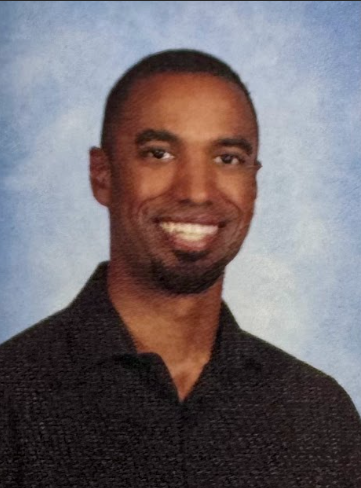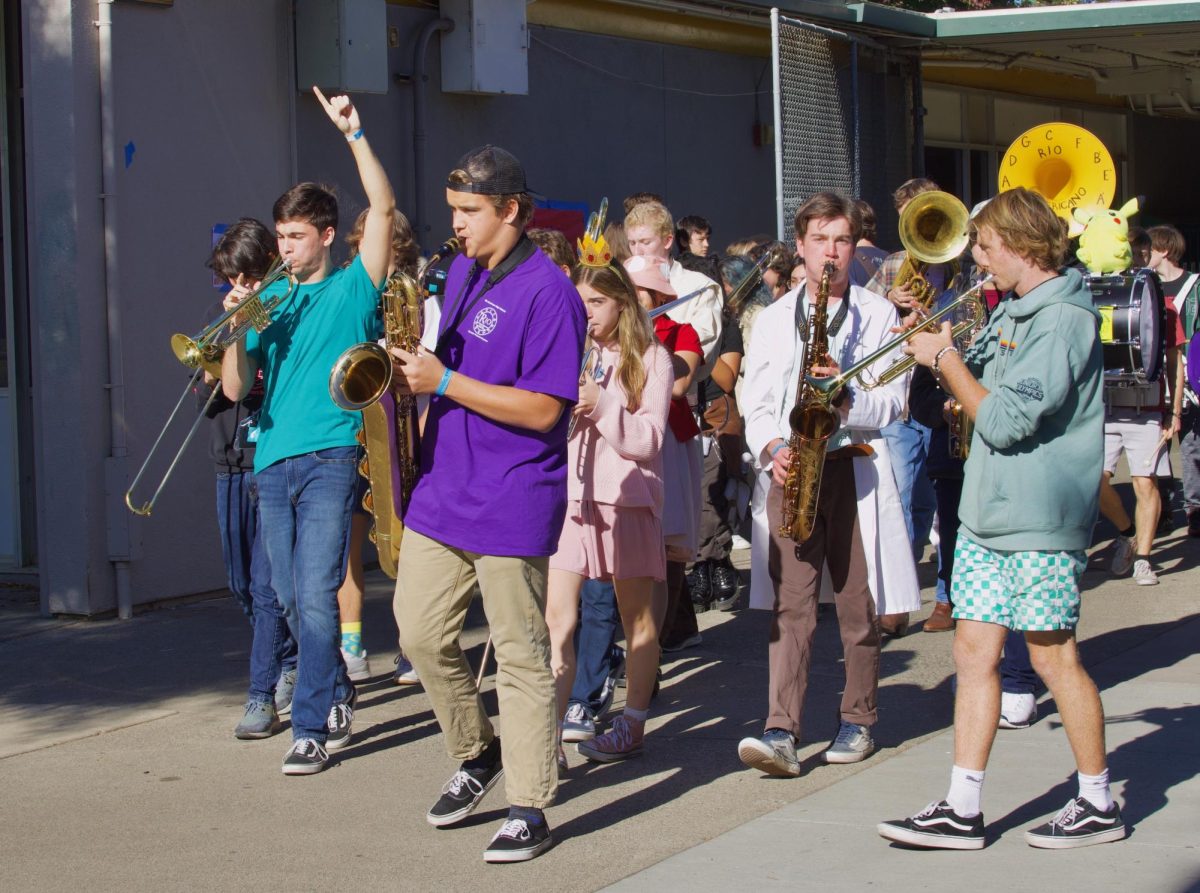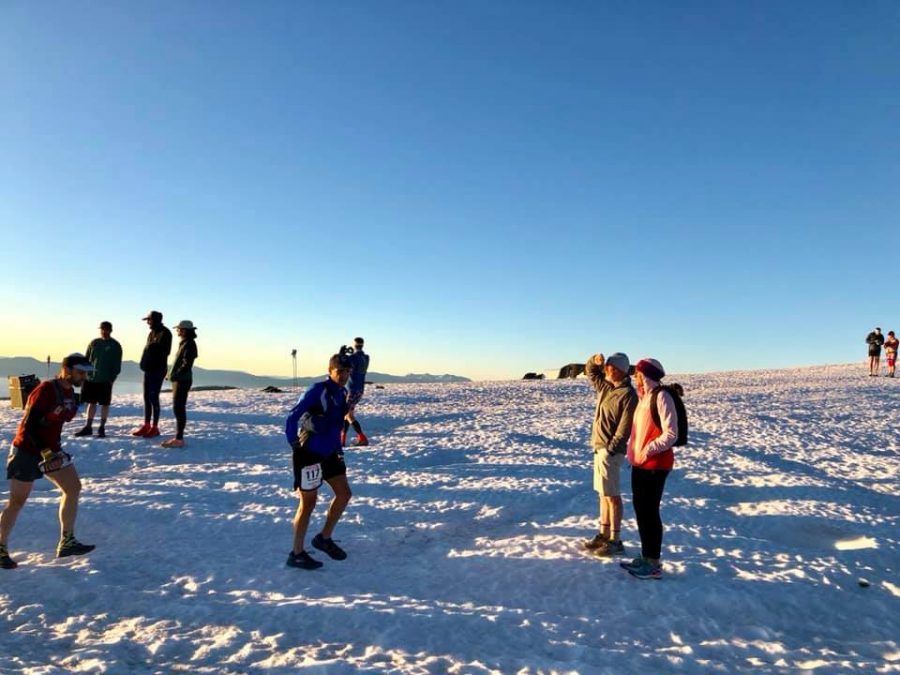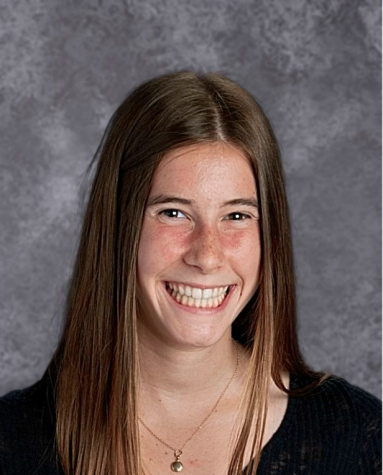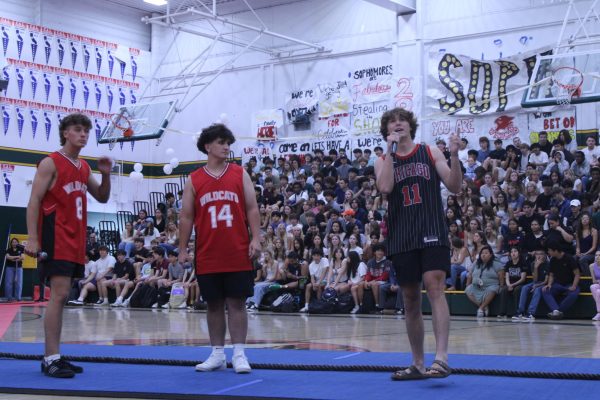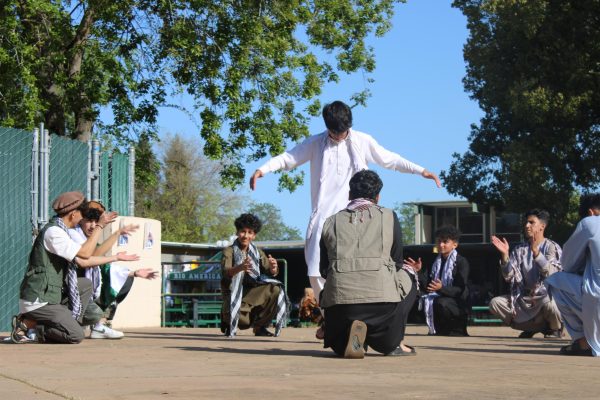Running long and making bonds

Unlike the typical lottery an economics teacher might talk about, Curt Casazza participated in the same lottery for seven years to be admitted into The Western States, a 100 mile race.
Most students know Casazza as their psychology or economics teacher, classes he has taught for 19 years. He started teaching at Rio 25 years ago in the special education department after graduating from Sonoma State with a psychology major.
“I did special education for five years with students with learning disabilities which fit in really well with psychology,” said Casazza.
He transferred to the classes he has now when an old teacher retired, creating a need for both a psychology and economics teacher.
“Economics was always a passion I had,” said Casazza. “My grandfather and I always discussed economics and so it just made sense.”
Settled at Rio, he began to pursue another passion of his, running.
“I got into running 15 years ago,” said Casazza. “The reason was totally for health.”
Beginning running to lose weight, Casazza’s casual exercise quickly turned into a strong passion. After performing well in his first race, Casazza caught the ‘marathon bug,’ as runners call it, and set a goal of qualifying for the prestigious Boston Marathon.
“I ran another marathon and qualified for Boston,” said Casazza. “It just spun out of control after that; I just started running a lot.”
Once a part of the running community, Casazza was introduced into ultra running. Ultramarathons are any foot races longer than the traditional 26.2 mile marathon.
This distance provided Casazza with a different challenge; it was something he had never done before.
“I did two local ultra marathons about five years after I did my first marathon,” said Casazza.
His first ultra was 50 kilometers, around 31 miles, and the second was a full 50 mile race.
Sacramento is a popular hub for competitive athletes, as the American River Parkway provides miles of endless trail. Casazza is a part of a local, elite running club called Sacramento Running Association (SRA).
“I started going back and forth between road racing and running and ultramarathoning on trails,” said Casazza.
Trail running sparked his desire to compete in Western States, the oldest official trail run in the United States. The idea originated many years ago after Casazza had completed multiple ultramarathons, up to 100 kilometers.
“It’s kind of like the Super Bowl of trail running,” said Casazza. “If you are a trail runner you want to do that specific race.”
Casazza began his seven year journey to qualify, deciding that if he was going to put forth the effort to train for a 100 mile race, Western States would be the race to do.
Runners must complete a 100k every year in order to be considered for the lottery.
This forced Casazza into an intense cycle of ultra running, having to run a race each year to maintain his eligibility for Western States.
“The lottery is amazingly difficult to get into,” said Casazza. “Every year you lose, you double your tickets so eventually I got enough tickets to get chosen my seventh year.”
Running 100 miles requires many aspects to be taken into consideration, aside from typical training. Casazza planned out specific eating and drinking habits around the time he estimated the race to take.
“The goal was 24 hours which is an entire day,” said Casazza.
Finishers who complete the race in a day receive a silver belt buckle for their achievement. Casazza exceeded his expectations, finishing in 23 hours and earning the respected buckle.
During the 23 hours Casazza spent traveling through the hilly terrain from Squaw Valley to Auburn, he tried to consume 300 calories per hour.
Little things one may not think of appear as major obstacles in such a long race. Western States, in particular, started at 5 a.m..
“When I got to mile 70 or 75 it got dark so I had to carry a light and run with a headlamp,” said Casazza.
Not only did Casazza run through varying light, but the temperature changes a lot within a day, forcing him to layer.
Running an ultramarathon is not an individual task, either.
“I had some friends and family come and help me run the last 40 miles,” said Casazza.
Since he was running for nearly 24 hours, he needed a crew to get through the mental and physical challenges the race provides.
Western States now is one of Casazza’s proudest memories, though the task took its toll.
“It was an incredible experience but I’m done running long ultras,” said Casazza.
Though Casazza does not see any more 100 mile races in his future, the connections running has provided will keep him coming back to run.
He treasures the way inning brings people together, whether running with his family, the cross country team, his own teammates, or international friends the sport has brought him.
“It is a bond that you can make with people all over the world,” said Casazza, referring to his friends in Italy, Germany, and Japan.
Recently, he paced a friend from Tokyo in a race through the Marin Headlands.
His next big run will be the California International Marathon this December, but rather than racing it he will pace this race. Casazza’s comfort running long distances allows him to help other runners from around the globe reach their goals.
When Casazza travels to new race destinations, or even running around Lake Natoma with SRA, he finds that running has the capability to connect him with many different cultures and inspirational people.
“You have this great bond and common interest,” said Casazza. “It’s like a family.”

